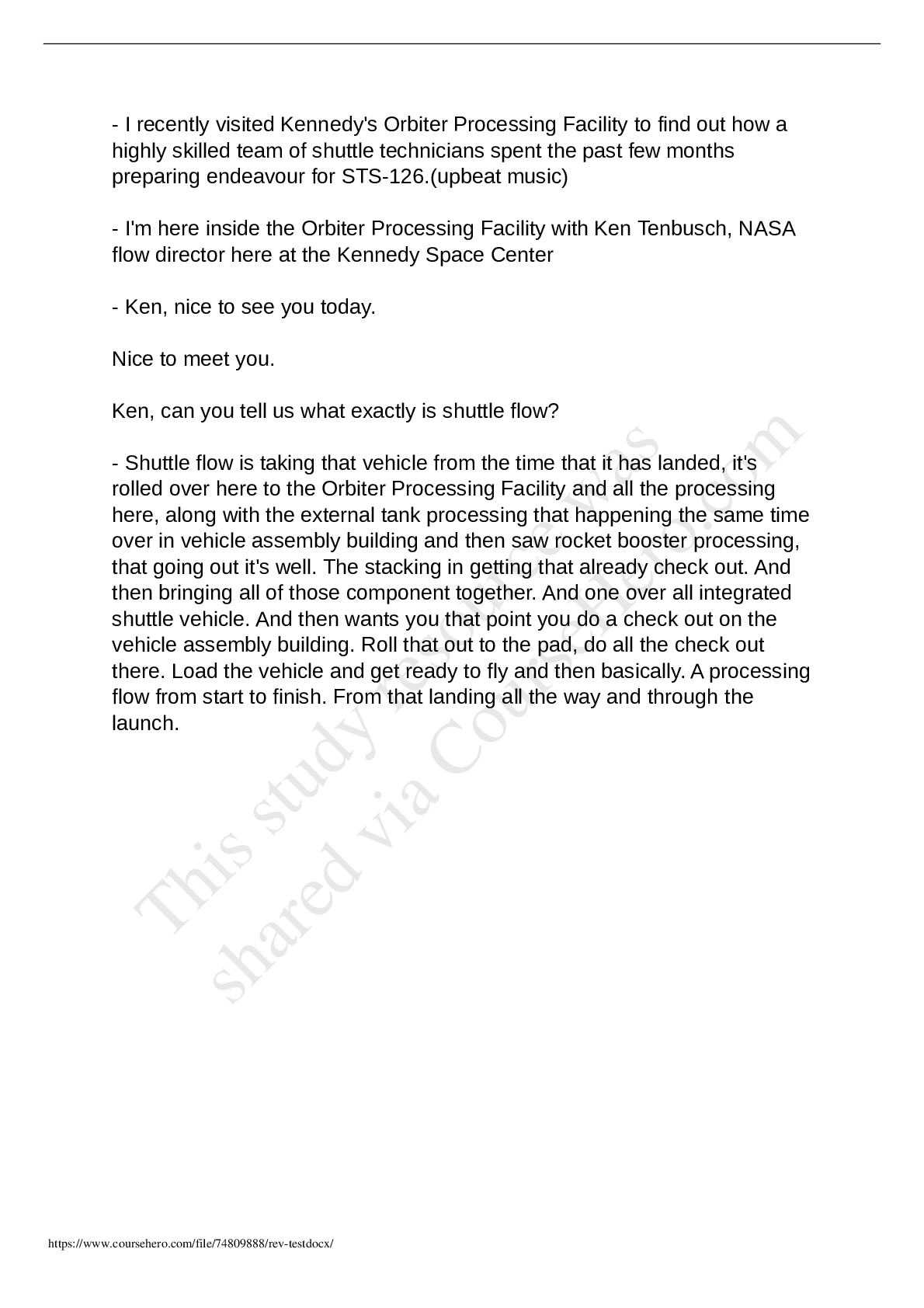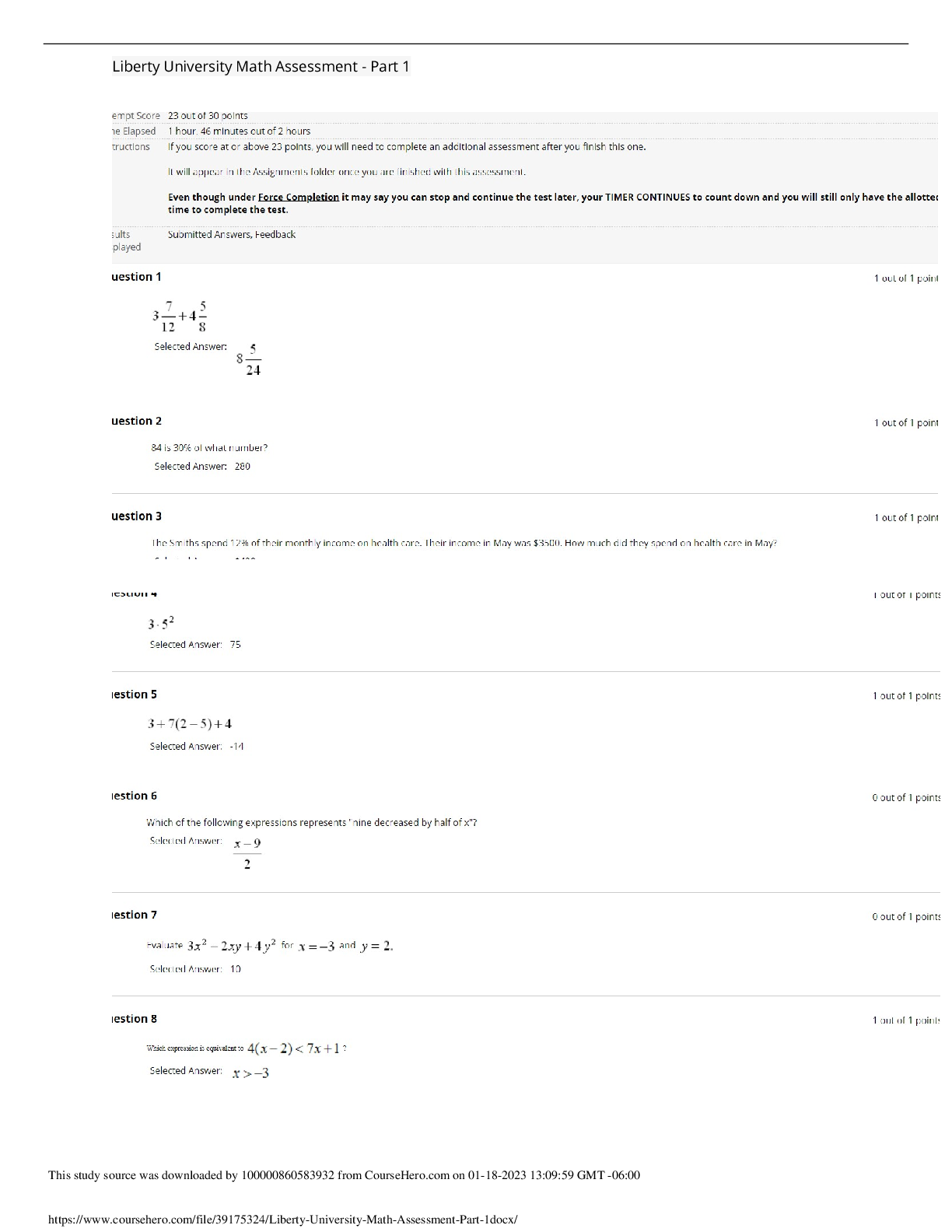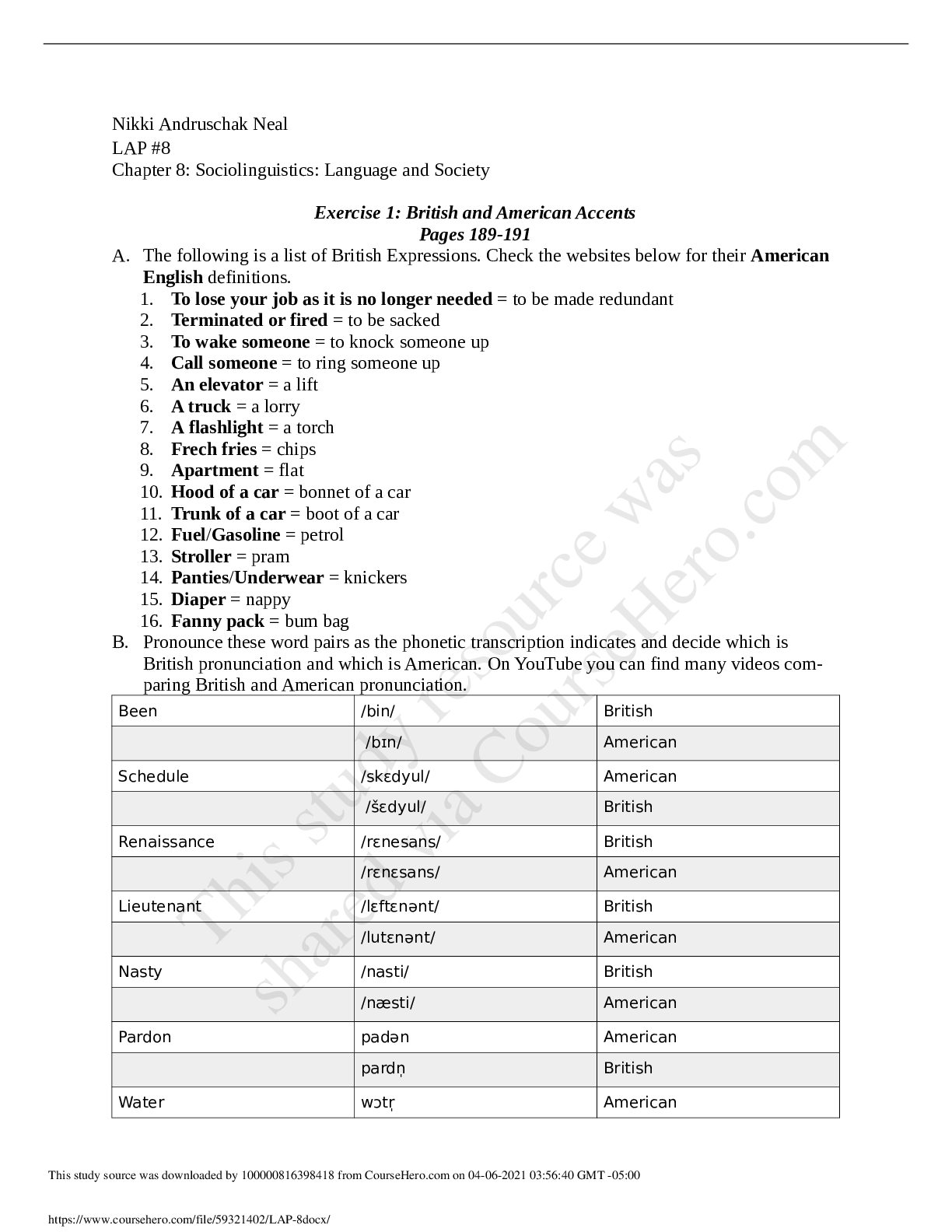Linguistics > STUDY GUIDE > Northern Arizona University - BME 538Exercise #8 Sociolinguistics: language and society (All)
Northern Arizona University - BME 538Exercise #8 Sociolinguistics: language and society
Document Content and Description Below
Nikki Andruschak Neal Exercise 8 Chapter 8: Sociolinguistics Sociolinguistics: language and society Chapter 8 Review of terms and concepts 1. The way an individual speaks is known as an idiolect... . 2. A group of people who live, work, socialize and communicate together is a language/speech community. 3. The prestige dialect used in business, education and the media in the United States is called Standard American English. 4. The prestige dialect in Great Britain is referred to as BBC English 5. Many lexical items vary according to the region in the United States. 6. The Spanish spoken in Mexico has words derived from Nahuatl. 7. In different parts of the English speaking world, some people say /t meto ə / and some say /tə- mato/. This is called phonological variation. 8. One difference between Mexican and Puerto Rican pronunciation is that Puerto Rican Spanish has a rule that allows /s/ deletion. 9. In the United States, southerners distinguish between you (singular) and y’all. 10.Americans use the singular verb for a collective noun, but the British use the plural verb. 1. Regional dialects have a social meaning. 2. British accents may sound very elegant to an American audience. 3. Speakers from the Bronx, New York, substitute /t/ for /θ/, delete the /r/, and insert /ɔy/. 4. African slaves combined the language of their masters with elements of languages from Africa to produce unique dialects. 5. Many African Americans have learned to use SAE in school, business or white communities. 6. The practice of changing from one style of language to another is called code switching. 7. AAE is one of the many dialects of English that has a rule for /r/ and /l/ deletion. 8. SAE has a rule that allows reduction of the final consonant cluster to a single consonant before another word that begins with a consonant. 9. Additionally, AAE speakers may apply this rule when the second word begins with a vowel. 10. Some varieties of AAE also modify the interdental fricatives /θ/ and /ð/, so that they are pronounced as the voiceless /t/ and as the voiced /d/. 11. One of the most prominent features of AAE dialects is verb deletion and verb aspect. 12. AAE allows auxiliary verbs to be deleted if SAE allows them to be contracted. 13. The aspect of a verb expresses the completeness or duration of the action. 14. Another important syntactic distinction of AAE is in the word order of indirect questions. 15. An important African American cultural value is respect and admiration for a man of words. 16. Some of the characteristics of Hispanic English are the result of the application of the Spanish phonological system on English words and Spanish word order on English sentences. 17. English has 12 main vowels; Spanish has 5 main vowels [Show More]
Last updated: 2 years ago
Preview 1 out of 2 pages

Buy this document to get the full access instantly
Instant Download Access after purchase
Buy NowInstant download
We Accept:

Reviews( 0 )
$3.00
Can't find what you want? Try our AI powered Search
Document information
Connected school, study & course
About the document
Uploaded On
Apr 06, 2021
Number of pages
2
Written in
Additional information
This document has been written for:
Uploaded
Apr 06, 2021
Downloads
0
Views
73














